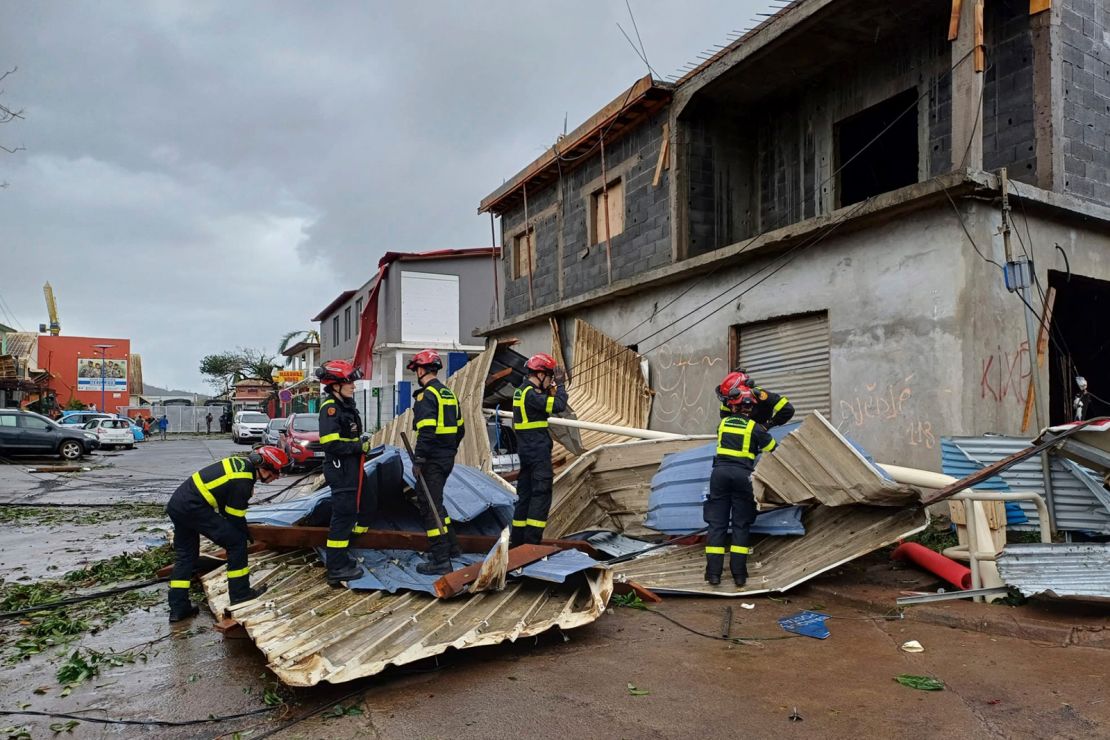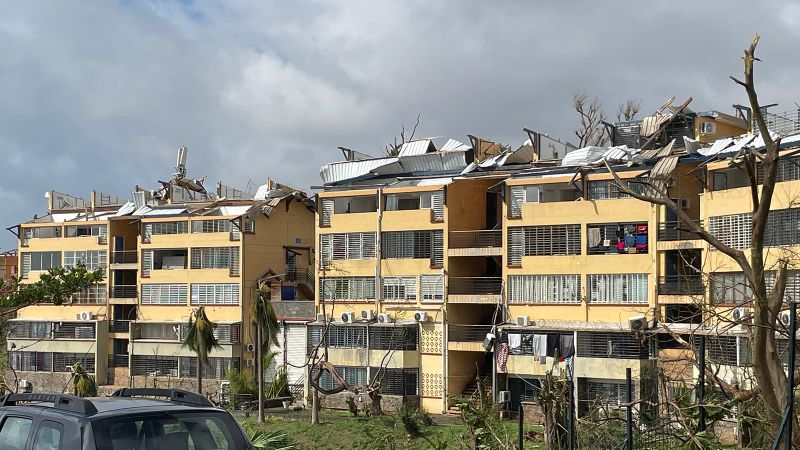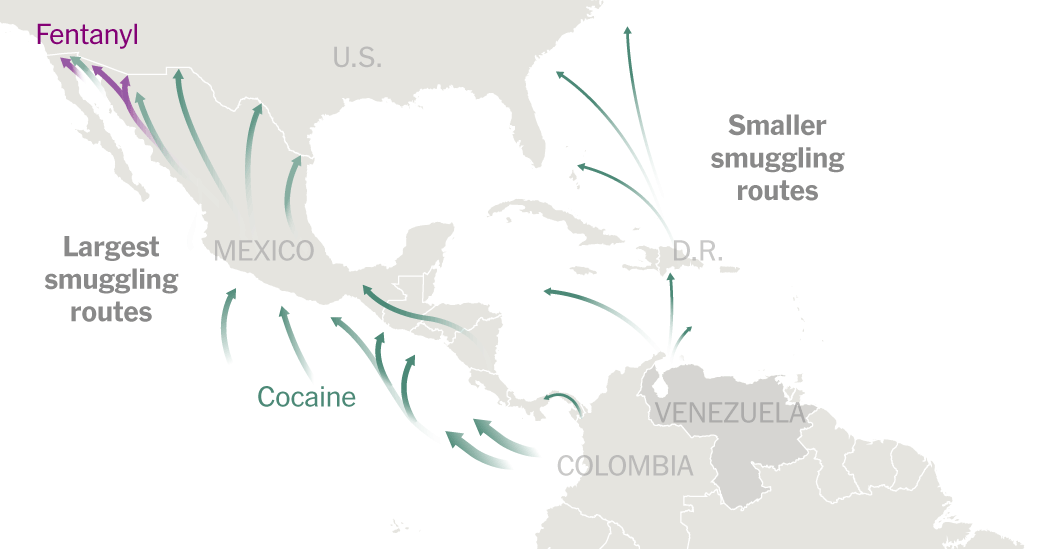CNN
—
Reports of widespread damage are emerging from Mayotte after a 100-year cyclone ripped across the French archipelago Saturday, inflicting devastation that one resident likened to an atomic bomb, with hundreds and possibly even thousands of feared victims.
“The situation is catastrophic, apocalyptic,” Bruno Garcia, owner of Hotel Caribou in Mamoudzou, Mayotte’s capital, told CNN-affiliate BFMTV.
“We lost everything. The entire hotel is completely destroyed,” Garcia said. “There is nothing left. It’s as if an atomic bomb fell on Mayotte.”
Mayotte lies in the Indian Ocean off the east coast of Africa, just west of Madagascar. Made up of two main islands, its land area is about twice the size of Washington DC.
Cyclone Chido, a category 4 storm, tore through the southwestern Indian Ocean over the weekend, impacting northern Madagascar before rapidly intensifying and slamming Mayotte with winds above 220 kilometers per hour (136 miles per hour), according to France’s weather service. It was the strongest storm to hit the islands in more than 90 years, Meteo-France said.
Chido then continued into northern Mozambique where it continued to cause damage, though the storm has now weakened.
The cyclone – the worst to hit the territory of just over 300,000 in at least 90 years – flattened neighborhoods, knocked out electrical grids, crushed hospitals and schools and damaged the airport’s control tower.
“Honestly, what we are experiencing is a tragedy, you feel like you are in the aftermath of a nuclear war… I saw an entire neighborhood disappear,” Mohamed Ishmael, a Mamoudzou resident, told Reuters.
At least 11 people have been confirmed dead by the French Interior Ministry, but the true death toll is expected to be much higher, with local officials predicting the number of victims could be in the hundreds or even thousands, the Associated Press reported.
“I think there are some several hundred dead, maybe we’ll get close to a thousand. Even thousands … given the violence of this event,″ Mayotte Prefect François-Xavier Bieuville told TV station Mayotte la 1ère.
The worst damage was to neighborhoods composed of metal shacks and informal structures that are found across Mayotte, Bieuville said.
Of the official death toll, Bieuville said “this figure is not plausible when you see the images of the slums.”

Debris from the storm has blocked access to roads across the archipelago, making aid delivery challenging and hindering the search for survivors, BMFTV reported.
About two thirds of the island is currently unreachable, Estelle Youssouffa, member of parliament for the first constituency of Mayotte told BMFTV.
“We must not confuse the villages that are cut off from communication (…) and the shanty towns, where there is very little chance of there being survivors. Everything has been razed,” Yousouffa said.
Desperate family members took to social media to search for news of their loved ones after the storm disrupted telecommunications networks.
As of Monday morning, Mayotte had been almost entirely offline for over 36 hours, according to the website NetBlocks.
Located about 5,000 miles from Paris, Mayotte is the poorest place in the European Union and has long struggled with poverty, unemployment, social unrest and water shortages.
Over 100,000 undocumented migrants live in Mayotte, according to France’s Interior Ministry.
Hundreds of rescuers, firefighters and police have been sent to the territory from France and the nearby French territory of Reunion, though damage to the airport’s control tower means only military planes can land there, the Associated Press reported.
Cyclones, also known as typhoons and called hurricanes in North America, are enormous heat engines of wind and rain that feed on warm ocean water and moist air. Cyclone season in the southwest Indian Ocean typically runs from mid-November to the end of April, according to France’s weather agency.
Scientists say climate change is making tropical cyclones more destructive, in part due to rising sea levels caused by greenhouse gas emissions.
In 2019, two powerful cyclones, Idai and Kenneth, pummeled Mozambique over a period of two months, killing hundreds and leaving millions in need of humanitarian assistance.
Chad Youyou, a resident in Hamjago in the north of Mayotte, posted videos to Facebook showing flattened trees and extensive damage to his village, the Associated Press reported.
“Mayotte is destroyed … we are destroyed,” he said.


